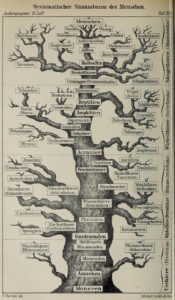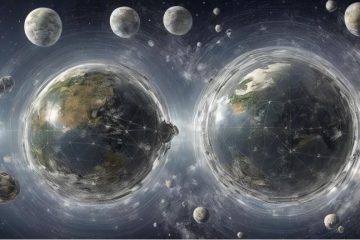Progress for Whom and What?

Steven Pinker’s recent book Enlightenment Now argues that despite all recent, post-modern claims to the contrary, we can still be certain that reason and science are making the world a better place than it was before. One also hears echoes of this from some scientists and philosophers of science who argue that human consciousness, reason, and intelligence are an inevitable outcome of cosmic expansion and planetary evolution. Physicist Paul Davies, for instance, has argued that the universe is “just right” for life, and that science will eventually uncover the mysteries not only of the origins of the universe but also consciousness. At a recent conference in Santa Cruz, a philosopher of science explained to me that we should not worry about the eventual expansion of the sun (which will fry the earth) because scientists are working on moving the earth’s orbit as the sun expands. ATTENTION ALL EARTHINGS: Buckle up! The earth is about to shift orbits, again.
In previous Counterpoint blogs, Kocku von Stuckrad, Alissa Jones Nelson, and John Thatamanil have cautioned against this type of wholehearted faith in objectivity, reason, and progress. I want to add a few ideas why we must look at faith in reason and the progress of science with similar skepticism. Such scientific certainty, I might begin, may cause more harm than uncertainty ever has. If it’s unwise for religions to have simplistic ideas about the god/s saving us, it’s also unwise for science to have its gods of science and progress. Don’t mistake me. Science can do a lot for us, like allow me to type this on this virtual platform and provide much needed antibiotics. But science is fueled by human inquiry, desires, and dreams and is only as good as those motives are. There is no “pure” science anymore than there is a single, orthodox version of a given religious tradition.
In contrast to the optimistic tone that Pinker, Davies, and my Santa Cruz philosopher hold, I don’t offer an equal and opposite pessimism. Rather, I offer a critical optimism or hopeful pessimism. I find it hard to claim the universe’s expansion or geo-evolution as overall “progress” when most species and planetary and solar bodies are gone. It’s hard to claim blanket progress in science and reason when we live amid gross economic inequities and when (some) humans have destroyed much of the planet’s non-human life in the last 100 years.
The period since the end of WWII has been what some sociologists call “The Great Acceleration,” the increase in speed of production, transportation, and communication technologies due mostly to the use of fossil fuels and other non-renewable energies. This great acceleration has benefitted some humans at the expense of others and has threatened other species and perhaps even the possibility of future life on the planet. Many are calling this new geological era “The Anthopocene” because of the impact human actions now have on Earth. Some welcome it: humans, they hold, have finally terra-formed nature and now have control. In the language of Teilhard de Chardin, a Jesuit priest, philosopher, and geologist, the Anthropocene might be seen as proof of progress to the next level of evolution: the noosphere, the realm of consciousness or spirit. Teilhard attempted to re-think Christian theology from an evolutionary perspective and opened the door to a version of environmental readings of Christianity—but also to a linear reading of evolutionary progress that leads up to humans and Christianity as the main telos or goal of the universe (Lisa Sideris provides an excellent summary).
The question I ask, along with Sideris and others, is: progress for whom and for what vision of life?
In order to judge something as “progress,” one must be able to measure progress and regress. And this can be done only through an ordering or ranking of human values, worldviews. and aesthetics. The world I hope for, that I think is “progress,” is tied up in the way our human bodies have lived in economic, political, philosophical, and religious systems and the cultural perspectives and values that go along with them. Others may have different ideas of what “progress” is.
Here’s an example of why these contexts matter and why critical optimism or hopeful pessimism and uncertainty is so important.
Ernst Haeckel, the so-called “German Darwin,” was an early adopter of evolutionary theory as a way of bringing the sciences together into a naturalistic worldview and “geo-story” of the planet. He not only thought that the “natural” sciences would fit together in an evolutionary framework but that the human sciences would as well. He founded the Monistenbund in Germany to promote the new “religion” of evolution. Like many scientists of his time, his idea of evolution was heavily influenced by the ranking of societies and languages in a hierarchical, evolutionary framework. For Haeckel and other European academics, this often meant that European languages and cultures were “on top” and places with little or no written language were “on the bottom.” This ranking, in combination with colonialism and nationalism, had disastrous, racist, ethnocentric, and genocidal consequences.
Though we may be able to see that now, today’s values, assumptions, and desires may be damaging in ways we do not now see. Like the “science” of the nineteenth century, they may do much harm as they seep into the way we now do science.
Take for instance the idea that human consciousness is the most complex and valuable thing in the universe. This type of thinking has been promoted by the John Templeton Foundation, one of the largest funders of research into “religion and science” and an organization with a clear religious agenda. This type of thinking links up with the anthropocentric argument that the universe was “set up” for our present sort of human life. Might not some other form of life—or other way of organizing human life—be equally amazing? Is not the beauty and complexity of other organisms equally astonishing? And hasn’t human consciousness led also to much destruction? How does evading these questions impact our “science” in ways that might harm humanity and the planet?
Finally, if human consciousness is the most valuable thing in the universe, what is the cost of protecting it? When large regions of the planet become uninhabitable, would we be morally justified in loading up a ship to take the “smartest people” to a new home while the rest of humanity and other species die a slow death on a dying planet? This may seem far-fetched, but so do formerly “scientific” ways of thinking. This is precisely why we must continue the critically optimistic and hopefully pessimistic refrain: progress for what and for whom?
#
Whitney A. Bauman is Co-Founder and Co-Director of Counterpoint, as well as Associate Professor of Religious Studies. He is the author of several books and articles including: Religion and Ecology: Developing A Planetary Ethic (Columbia University Press, 2014), and with Kevin O’Brien, Environmental Ethics and Uncertainty: Wrestling with Wicked Problems (Routledge, Forthcoming 2019).
This Counterpoint blog post may be reprinted with the following acknowledgement: “This article was published by Counterpoint Navigating Knowledge on 8 May 2019.”
The views and opinions expressed on this website, in its publications, and in comments made in response to the site and publications are those of the author(s) and do not necessarily reflect the views and opinions of Counterpoint: Navigating Knowledge, its founders, its staff, or any agent or institution affiliated with it, nor those of the institution(s) with which the author is affiliated. Counterpoint exists to promote vigorous debate within and across knowledge systems and therefore publishes a wide variety of views and opinions in the interests of open conversation and dialogue.



